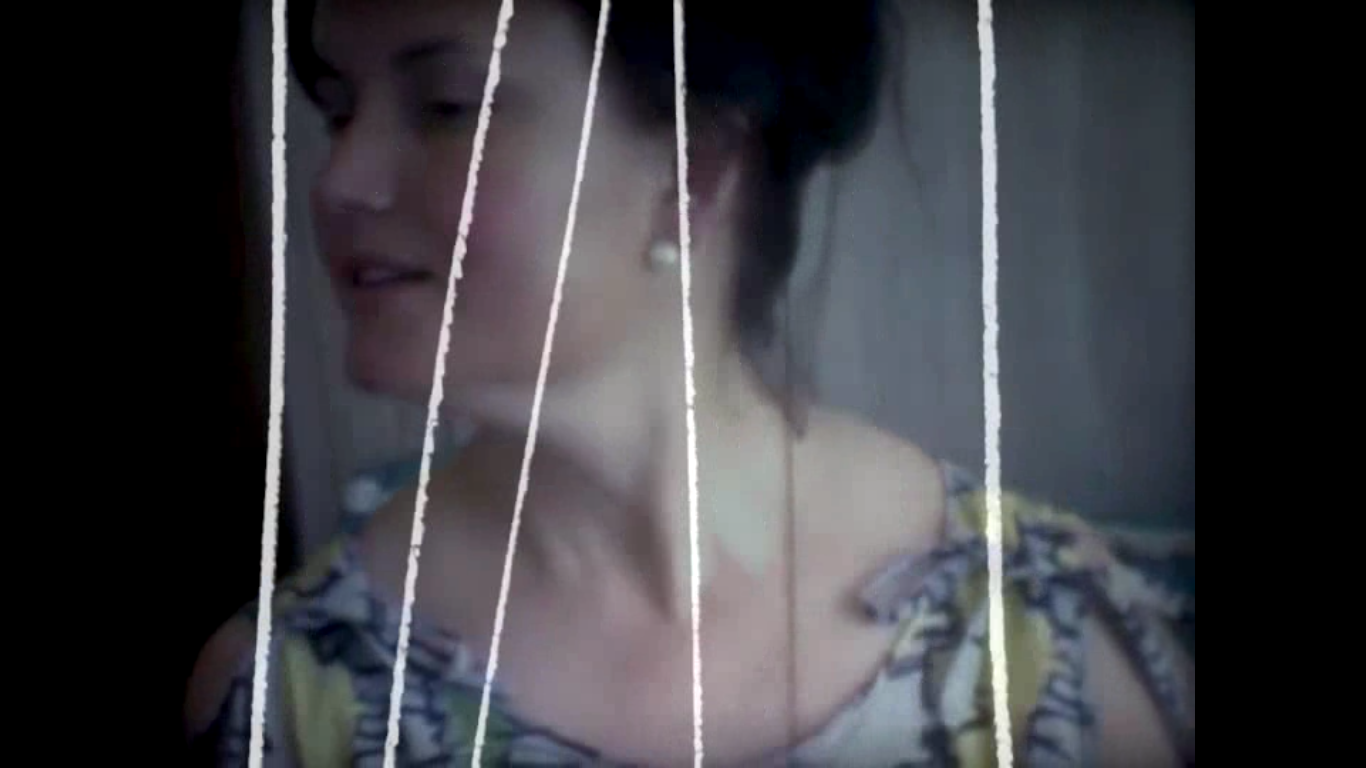O ESTADO SALVAXE
“O estado salvaxe. Espanha 1939 is a performance created from several conversations with my grandmother. She is, besides, the only actress of the play. Through some Super 8 films, recorded by my grandfather from fifties to eighties, we will rewrite my family story, and at the same time, Spanish history from the Civil War up to the present day. This is a testimony of a woman, quiet for a long time, who wanted to speak up, to clear up, to repair. This is, above all, a lucid and extreme act of love, an attack of romanticism before burning the bridges. In a letter to her grandaughters, my grandmother narrates her biography and brings into question her whole past, present and future, with an amazing truthfulness which sheds light on the meaning of being alive nowadays.”
O estado salvaxe. Espanha 1939 has been created between Galicia, Portugal and Argentina. Produced by MARCO, Museo de Arte Contemporánea de Vigo, coproduced by Centro Párraga (Murcia) and Festival Temps d’Images (Lisbon). With the support of Fundación START-Centro de Investigaciones Artísticas de Buenos Aires, Festival Bad-Museo Guggenheim Bilbao, Centro Cultural Vilaflor (Guimarães), O espaço do tempo (Montemor-o-novo) and Zé dos bois (Lisbon). Selected by Fabulamundi Project. Playwrite Europe 2013/2014. A performance by Pablo Fidalgo upon the films of Manuel Lareo Costas, digitized by eSe8, edition by Xurxo Chirro. Performed by Mercedes Fernández Vázquez. Thecnical assistance by Paul Edward Guy and Antón Ferreiro.

O estado salvaxe. Espanha 1939 premiered at MARCO (Ciclo Material memoria, Vigo) in 2013 and was presented at Lisboa (Festival Temps d’images-Galería ZDB), Bilbao (Guggenheim- Festival BAD), Festival Sinsal (Illa de San Simón), Festival Facyl (Salamanca) and Teatro Lauro Olmo (O Barco de Valdeorras). A in progress version has been presented at Centro CIA in Buenos Aires on September, 2013. In 2014 and 2015 O estado salvaxe. Espanha 1939 was performed at Festa do Avante-PCP (Seixal, Portugal), Festival IDEM (La Casa Encendida, Madrid), Festival Verao Azul (Lagos, Portugal), Antic Teatre (Barcelona), Centro Párraga (Murcia), Festival Internacional de teatro de Ourense, Festival Curtocircuito (Santiago de Compostela), Ágora (A Coruña), Aula de Teatro de la Universidad de Valencia, Leal.Lav (La Laguna, Tenerife), Teatro Municipal de Porto (Portugal) and Teatro Municipal Maria Matos (Lisbon, Portugal).
The text of O estado salvaxe was published in the book Autobiografía de mi generación (Marco, Vigo, 2014) and in Argenina (O estado salvaxe. Espanha 1939.)
Ediciones Neutrinos: Rosario, 2015). An interview about this work can be found at the volume Conferencia Performativa (MUSAC, León).
REVIEWS ABOUT O ESTADO SALVAXE
Eduardo Pérez-Rasilla: “I attended Pablo Fidalgo’s performance O estado salavaxe. Espanha 1939, on February 28, 2014 at the Museum of Contemporary Art of Vigo (MARCO). (…) I write these notes from the place of spectator and from reading the texts. The aim of these notes is to collect my thoughts before a singular and intense scenic event of considerable intellectual depth and aesthetic and political ambition. And why not to say, of an uncommon beauty.. (…)”Alberto Ruiz de Samaniego: “(…) Although it is an irrefutable fact: we are all immersed in a happy or unhappy series – or better: happy and unhappy. Also fatal course. Maybe even before birth, of this I am almost as sure as Pablo (Fidalgo). The birth itself, as much as social – and biological rite with the brand of umbilical cord as a broken connection with the maternal womb evidence that. Then the child develops attempts – frustrated or fulfilled: fulfilled and frustrated-to metabolize the series, that is, to make us one in it. But acquires ever sense childhood? Here’s a question that certainly has been Pablo Fidalgo asked to himself; and that we in turn ask ourselves also, along with their writing and their performance. (…)”
Olga Novo: “The long dramatic poem O estado salvaxe. Espanha 1939, Pablo Fidalgo Lareo, consists of these two acts in two acts, which respectively cross-talk of his grandfather and maternal grandmother memories. A play that, being a dramatizationof life, denies literary fiction and becomes life exposed in its deepest truth, in the words of the grandmother at the beginning of the second act: “This is not a play, it is an act of life” (…)”